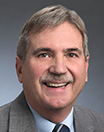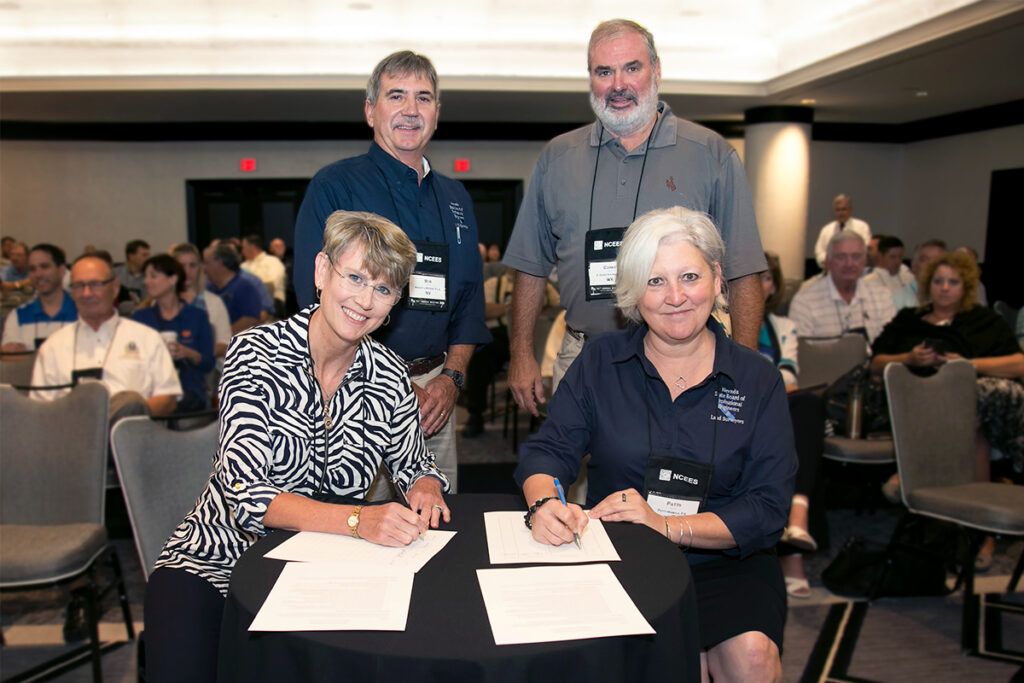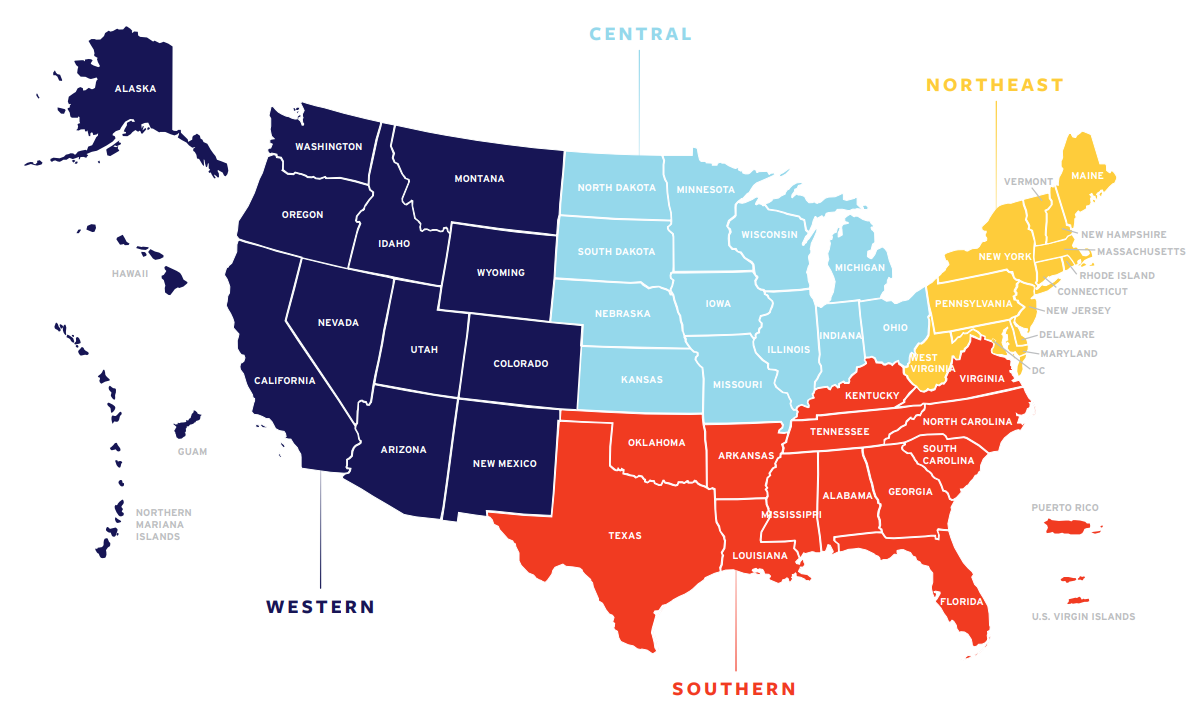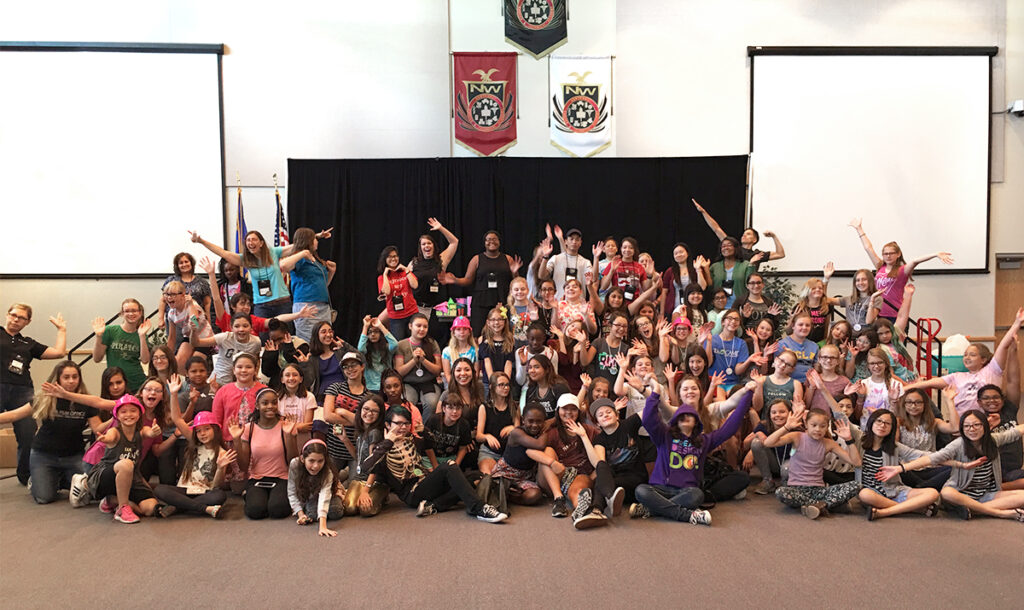Chairman's Message

Mr LaRiviere was elected by the state board to serve as the new chairman effective July 1, 2017. He was reappointed July 1, 2016, by Governor Brian Sandoval to serve a third term on the board.
As mentioned in the last newsletter, it’s concerning to see the diminishing numbers of surveyors in Nevada and across the country. I was recently encouraged to hear from the Nevada Association of Land Surveyors that the number of surveying degree seeking students at Great Basin College in Nevada has increased substantially. This year Great Basin College has over 100 students enrolled in its surveying program. This is significant considering the program nearly ended a few years ago due to unsustainable low enrollment numbers. With signs of an improving Nevada economy, I am hopeful the upward trend in enrollment will continue and that the downward decline in licensed surveyors will correct.
Currently the board is reviewing its regulations. There are a number of regulations that need to be updated to reflect current practice. We are vetting the proposed changes with the board’s Professional Association Liaison Committee members. As soon as we have PAL committee and board consensus, we will begin the formal process of changing the regulations which includes public workshops and a comment period. Please stay tuned for future information on the board’s proposed regulation changes.
The board recently approved an international comity policy. Nevada Revised Statute 625.382 provides for licensing applicants that are already licensed in other countries. However, the board was required to determine whether the licensing requirements of a country are equivalent to Nevada’s. The new policy enables the board to implement administrative processes for licensing applicants that are licensed in another country and that meet the standard established by the International Engineering Alliance. The IEA has a multi-lateral agreement between its signatory members that establish competency standards and a method for auditing compliance of its members. Because the IEA standard exceeds Nevada’s standards for licensing, the Nevada board has deemed it substantially equivalent. Currently, 14 countries, including the US, are signatory members of the multi-lateral mobility agreement. This benefits Nevada by creating a pathway for foreign licensed engineers to bring their unique expertise to support the Governor’s efforts to diversify Nevada’s economy, and benefits Nevada licenses who may want to take their unique talents to other countries.
On a closing note, the board welcomes offers to volunteer your time and talents. If you would like to be considered to be a guest board member or serve on a board advisory committee, please feel free to send an email to the board office, board@boe.state.nv.us.
NEVADA-WYOMING MEMORANDUM OF UNDERSTANDING
A NCEES Model Law engineer or land surveyor is the agreed upon standard for licensure amongst the state boards. To meet the Model Law standard an engineer or land surveyor must:
- Have a 4-year ABET accredited Bachelor of Science degree in engineering or surveying
- Pass the fundamentals and professional practice exams
- Obtain 4-years of progressive qualifying experience
At the NCEES Annual Meeting held in Miami, FL, August 2017, Wyoming and Nevada signed a regional mobility memorandum of understanding. The memorandum agrees that NCEES Model Law engineer or land surveyor applicants can apply to either Wyoming or Nevada and can also choose to be licensed in the other state. Each state still requires its state-specific exam for licensure and collects its respective fees. But the applicant only completes one application, saving significant time—time to complete multiple applications, and time for each state to review and approve the application for licensure. This is a big step in speeding the licensing process in the US.

After the MOU was signed, a number of states have approached Nevada and Wyoming asking for a copy of the memorandum. It is our hope that other states will sign on to the regional mobility memorandum.
State licensing boards, have an obligation to protect public health, safety, and welfare. However, the licensing process for comity can be a painful process for a licensee, especially if a licensee desires to be licensed in multiple states. Typically it’s not state laws and rules that slow the licensing process it’s the administrative processes used by staff and boards. As of July 1, 2016, the Nevada board began reviewing all administrative processes and eliminating those that are superfluous to conforming to Nevada laws and rules. This has afforded the board the ability to eliminate the backlog of incomplete applications and process comity applications much faster than in the past. Also, Nevada Senate Bill 69 was signed into law and became effective July 1, 2017. The new law grants authority to the Executive Director and the board chair to approve comity applications and the approval is equal to action taken by the full board. So now comity applicants don’t have to wait for a board meeting—board meetings are held every other month. These two changes—updating administrative processes and the law change—have significantly sped the comity licensing process in Nevada, typically less than 30 days after receiving a completed application.
THE FUTURE OF ENGINEERING

- The Future of the Professions, Richard Susskind & Daniel Susskind, Oxford University Press, March 2017.
- The Fourth Industrial Revolution, Klaus Schwab, Crown Business, January 2017.
- A Whole New Engineer: The Coming Revolution in Engineering Education, David E. Goldberg and Mark Somerville, Threejoy Associates, 2013.
- Leaders Make the Future, Berrett-Kohler Publishers, May 2012.
The books were thought provoking, providing fodder for fueling discussions.
Currently, despite the demand for engineers, the US is not producing enough of them. In A Whole New Engineer, one of the reasons cited for this lack of engineers is that not enough students succeed in getting their degrees. Preparation and encouragement of high school students is one major cause for the lack of interest and success in the engineering related careers. This is especially true for women and minorities. Olin College has piloted a new approach to engineering education. Teachers collaborate with students to birth innovative ideas. Students build and make things prior to being taught the math and sciences. Creativity is encouraged, successes are celebrated, and failures are valued as opportunities for improving the engineering process. University of Illinois, unable to toss out its engineering education to create a new program, but knowing changes were needed to improve engineering education, adopted much of the Olin model on a voluntary basis and has seen 100% participation by staff and students. With the optimistic student approach of, “look to your right and look to your left, these will be the people to help you make it to the end of this program,” both of these programs have diverse student populations and impressive retention rates.
As engineers we often talk about concerns with engineering education, we may agree that changes are needed, but we passionately disagree on the fix. It’s exciting to watch Olin College lead the way in radically changing engineering education. Rather than working within the confines of current engineering education delivery systems, Olin has transformed delivery. It has no departments or tenured staff. Staff leads classes and collaborates with students to explore the boundaries of knowledge and innovation by working on research projects in addition to pursuing new ideas born by each student’s passionate pursuits. Olin has caught the attention of others and is collaborating with them, serving as a beacon for the future of engineering education in the world.
Technology is rapidly changing our world. The Future of the Professions describes how a number of professions have already been irrevocably changed by technology. Rather than seeking a Certified Public Accountant for tax preparation, taxpayers can simply use Turbo Tax, an online tax preparation software program. In the June issue of Builder magazine, which is the magazine for the National Association of Home Builders, there was an article on artificial intelligence based design. The article stated, “Currently, only professional designers know design rules and techniques. Our vision is to empower everyone to become interior designers with an app that combines AI with virtual reality.” It’s not a stretch that artificial intelligence will eventually percolate into engineering design practice. The market will no doubt demand it. A business owner of a major engineering firm attending the Future of Engineering Summit commented there is no reason why engineering designs can’t live in the public domain. Owners currently demand ownership of engineered drawings wanting the ability to reuse. When the demand exists it becomes only a matter of time before the competitive free market meets the demand.
UBER is a great example of the market meeting demand. There are cars on roads everywhere and people ride in cars to get places. By employing new technologies and innovative business models, UBER became a ridesharing service, sidestepping the regulation of the taxi industry. UBER is thriving as an unregulated service while the highly regulated taxi industry steadily declines. This very well could be the beginning of the end for the taxi industry. When considering the future of engineering and that just 20% of graduate engineers become licensed, regulators and licensed professional engineers could easily find themselves in a similar position to the taxi industry.
This last year state regulatory boards across the country experienced increased challenges to licensure. There were a number of bills considered at the Nevada Legislature that would have significantly impacted how engineering is regulated. And, these challenges don’t appear to be abating. Recently, the National Conference of State Legislatures commissioned an occupational licensing study in eleven states to identify current regulatory policies that create unnecessary barriers. Government’s approach is to change laws to affect change. The reality is there is much that can be done by state regulating boards to eliminate unnecessary barriers just by changing administrative processes. This board did just that and reduced comity/endorsement licensure time from over 70 days to an average of 7 days. This ultimately results in a positive impact to Nevada’s economy. As we continue to review our internal administrative processes, we will continue to make improvements and eliminate perceived barriers. As licensed professionals we should not be naïve or arrogant to believe that status quo will continue to be acceptable. The times are changing and coupled with the increasing rate of innovative advancements, we must be willing to commit to having an open mind, be willing to think big, and most importantly get out of our own way to meet the future of engineering. If we don’t, we run the risk of possible extinction.
PROFESSIONAL ASSOCIATION LIAISON PARTNER
The Nevada Board of Professional Engineers and Land Surveyors has a Professional Association Liaison committee. The PAL committee provides an opportunity for professional associations and the board to share information and work together to achieve common goals. Each newsletter we will highlight a professional organization.
Society of Women Engineers – Las Vegas Valley Section
SWE-LVV holds lunch meetings on the second Tuesday of the month at the Clark County Department of Building and Fire Prevention. Each meeting features updates on interesting projects and engineering technical topics by a variety of presenters. Meal selections are made to showcase local restaurants and small businesses in Clark County. All proceeds help purchase supplies for SWE’s annual outreach event, the “WOW! That’s Engineering” Summer Camp. The camp introduces 8 – 13 year old girls to engineering and science, and includes numerous hands-on engineering and construction activities. Thanks to your support, the 2017 summer camp participation doubled from the previous year, and we look forward to growing our 9th annual event in 2018!! Please contact Carla.Palma@ClarkCountyNV.Gov to join the SWE mailing list.

PROFESSIONAL ASSOCIATION EVENT CALENDAR
A Professional Associations Event Calendar has been added to the NVBPELS website. It’s designed as a one-stop resource for licensees to find out about professional engineering and land surveying related events happening in their community.
View the calendar at https://nvbpels.org/calendar
COMMUNICATION: KEEPING IT SIMPLE

Things to keep in mind…
- resist the temptation to jargon dump
- analyze your audience – how expert are they?
- what are you trying to convey?
- ask if what you’ve said has been understood
The challenge is to think about these things deliberately. Well-intentioned professionals can use jargon mistakenly; as mentioned above, the curse of knowledge – is one of the toughest challenges of communication. We highlight this because over a third of the disputes that come before the board have a root cause in poor communication. Taking a little extra time and care at the outset of your interactions, and considering who your recipient is, will pave the path for better communication and ultimately a better relationship in the long run.
CHANGED ADDRESS OR CONTACT INFORMATION?
Send us an e-mail at board@boe.state.nv.us and include your name, license #, and the new address or contact information and we will update your file.
Nevada Board Compliance Actions
September 2017 – November 2017
Larry Sanchez, PE #015752
Case Number 20170004
Violation NRS 625.410 (2), NAC 625.530 (5), NAC 625.645
Violation of NRS 625.410 (2): Professional engineering work product gross negligence and/or incompetency.
Violation of NAC 625.530 (5): Undertaking an assignment for which he is unqualified.
Violation of NAC 625.645: Failing to disclose a professional engineering project in his bi-monthly probation report to the board.
The following disciplinary action via stipulated agreement was determined by the board:
Stipulated Agreement Sep 07, 2017
- Mr Sanchez shall not perform any structural engineering services until he provides sufficient evidence to the board that he has received adequate training to perform structural engineering services
- License suspended for two (2) years, stayed and probation for that period.
- Shall not perform no professional engineering services outside his area of expertise.
- Successful completion of probation is expressly conditioned upon full compliance with the following conditions: (a) the board shall be provided with bi-monthly probation reports for Nevada projects (b) provide proof of the completion of thirty (30) professional development hours that are required for license renewal.
- Reimbursement to the board of legal costs of $2,176.
- Assume any fees and costs that arise to remedy the deficiencies in the complaint project.
- Submit a whitepaper on contracts to the board within 30 days.
Robert Coache, PE # 011505
Case Number 20160027
Violation NRS 625.410 (4), NAC 625.510, NAC 625.530
Violation of NRS 625.410 (4): Conviction of any crime involving dishonesty or which is directly related to the practice of engineering or land surveying.
Violation of NAC 625.510: A licensee shall uphold and advance the honor and dignity of the profession by maintaining high standards of ethical conduct.
Violation of NAC 625.530: Shall not act in a manner that is unfaithful to his/her employer, must inform his/her employer of adverse financial interests, and cannot accept compensation from more than one party for the same service.
Upon receiving the complaint, Mr Coache requested that the board withdraw his professional engineering license. Mr Coache was advised that he would still be subject to discipline if his license was withdrawn.
The following disciplinary action via stipulated agreement was determined by the board:
Stipulated Agreement Nov 17, 2017
- Payment of an administrative fine of $15,000.
- Reimbursement to the board of investigative costs of $7,620.
- Nevada professional engineering license revoked.
- Mr Coache may not apply for re-licensure until (a) He has: i) fully paid the administrative fine, ii) reimbursed the costs and fees, iii) fulfilled the terms of his sentence, iv) completed an ethics course acceptable to the board or (b) All of his felony convictions forming the basis for this discipline have been overturned or vacated.


